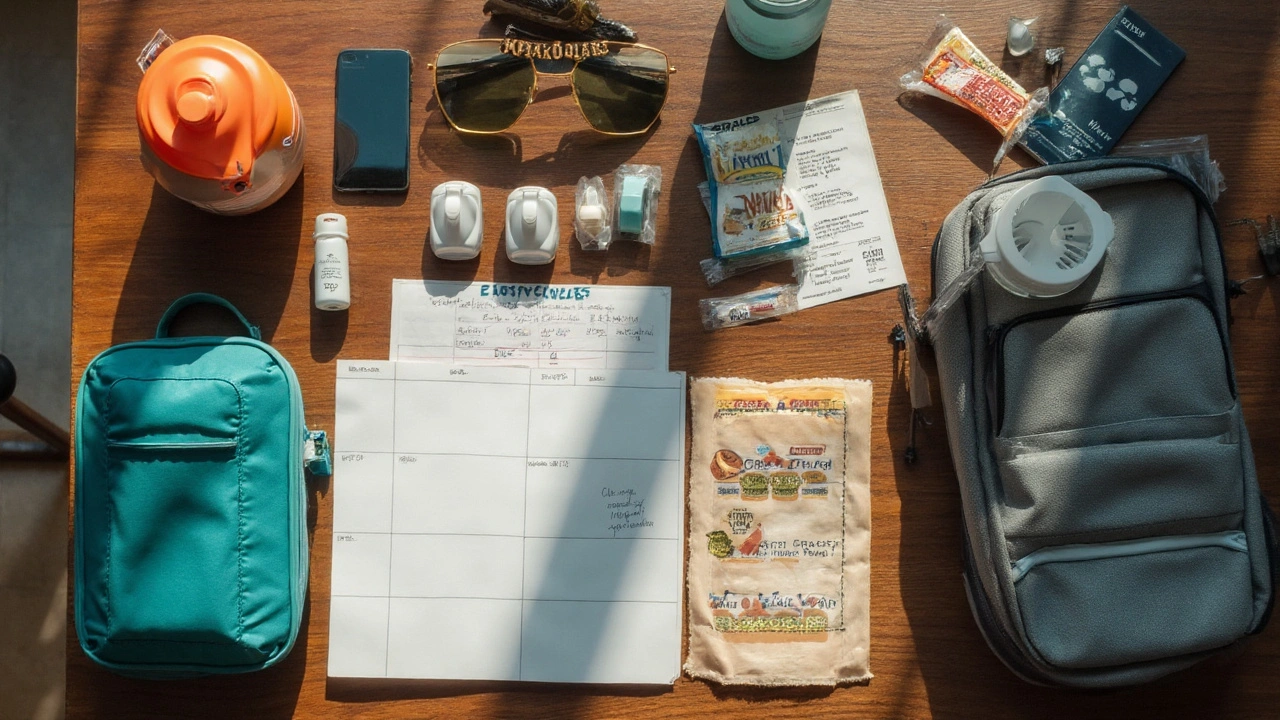Phosphate Supplements: What They Are and When to Use Them
Phosphate is a mineral your body needs to build strong bones and keep cells working. When diet falls short or a medical condition interferes, many turn to phosphate supplements. They come in tablets, powders, or liquids and usually contain phosphorus in the form of potassium phosphate, sodium phosphate, or calcium phosphate.
Why People Take Phosphate Supplements
Most people get enough phosphate from foods like meat, dairy, nuts, and beans. However, certain situations can drain your stores. Chronic kidney disease, heavy alcohol use, and some gastrointestinal surgeries can lower phosphate levels. Low phosphate can cause muscle weakness, bone pain, and even breathing problems.
Doctors may prescribe supplements to fix these issues. Athletes sometimes use them to boost energy, but the evidence is mixed. If you’re considering a supplement, the first step is a blood test to see if you really need extra phosphate.
How to Choose the Right Product
Look for a supplement that lists the exact amount of elemental phosphorus on the label. Most adults need about 700 mg of phosphorus per day from all sources. A typical supplement provides 250 mg to 500 mg per dose, so you can adjust based on your diet.
Check the form: calcium phosphate adds extra calcium, which can help bone health but may be too much for people with high calcium levels. Sodium phosphate adds sodium, so it’s not ideal if you watch your salt intake. Potassium phosphate is often a good middle ground, but people with kidney problems should avoid it unless a doctor says it’s safe.
Read the ingredient list for fillers or allergens. Some powders contain sweeteners or flavorings that might upset a sensitive stomach. Choose a product from a reputable brand that follows Good Manufacturing Practices (GMP) and offers third‑party testing.
When you start a supplement, take it with food. Food helps your gut absorb phosphate and reduces the chance of stomach upset. Follow the dosage instructions on the label, and don’t exceed the recommended amount without medical advice.
Watch out for side effects. Too much phosphate can cause nausea, diarrhea, or calcium deposits in soft tissues. In people with kidney disease, excess phosphate can worsen bone disease and heart problems. If you notice any weird symptoms, stop the supplement and talk to your doctor.
Finally, remember that supplements are not a cure‑all. A balanced diet rich in protein, dairy, nuts, and whole grains will usually provide enough phosphate. Use supplements only to fill a documented gap, and keep regular check‑ups to monitor your blood levels.
In short, phosphate supplements can be helpful for a specific group of people, but they’re not necessary for most healthy adults. Check your blood work, pick a product with clear labeling, take it with food, and stay alert for any side effects. When used wisely, they can support bone strength and overall energy without causing trouble.
Hypophosphatemia Travel Tips: Safe Flying, Time‑Zone Dosing, and On‑the‑Go Management
- Benjamin Aghaki-Allen
- Health
- 18 comment
Traveling with hypophosphatemia? Practical tips for meds, time zones, flights, food, heat, illness, and emergencies-so you stay steady and enjoy the trip.
VIEW MORECategories
Popular posts
-
Music Therapy for Relapsing‑Remitting Disease: Evidence, How-To, and 2025 Care Tips
Benjamin Aghaki-Allen -
Medication Safety for Non-English Speakers: How to Get Clear, Accurate Instructions
Benjamin Aghaki-Allen -
Blond Psyllium Daily: Benefits, Dosage, and How to Use for Digestive Health
Benjamin Aghaki-Allen -
Benzodiazepine Overdose: Emergency Treatment and Monitoring
Benjamin Aghaki-Allen -
Strawberry Supplements and Weight Loss: Evidence, Risks, and Smarter Alternatives (2025 Guide)
Benjamin Aghaki-Allen
Popular tags
- side effects
- medication safety
- online pharmacy
- generic drugs
- medication errors
- drug side effects
- dietary supplement
- gut health
- blood pressure medication
- alternatives
- medication adherence
- Hatch-Waxman Act
- drug interactions
- weight loss
- dosage
- weight management
- quality of life
- cheap generic Zoloft
- affordable sertraline
- Claritin
